Adelaide abuse survivors welcome apology – but action must follow
Survivors of institutional child sexual abuse in South Australia have described their crippling pain, anger and loss of innocence as they gathered in Adelaide to watch Prime Minister Scott Morrison deliver the National Apology.
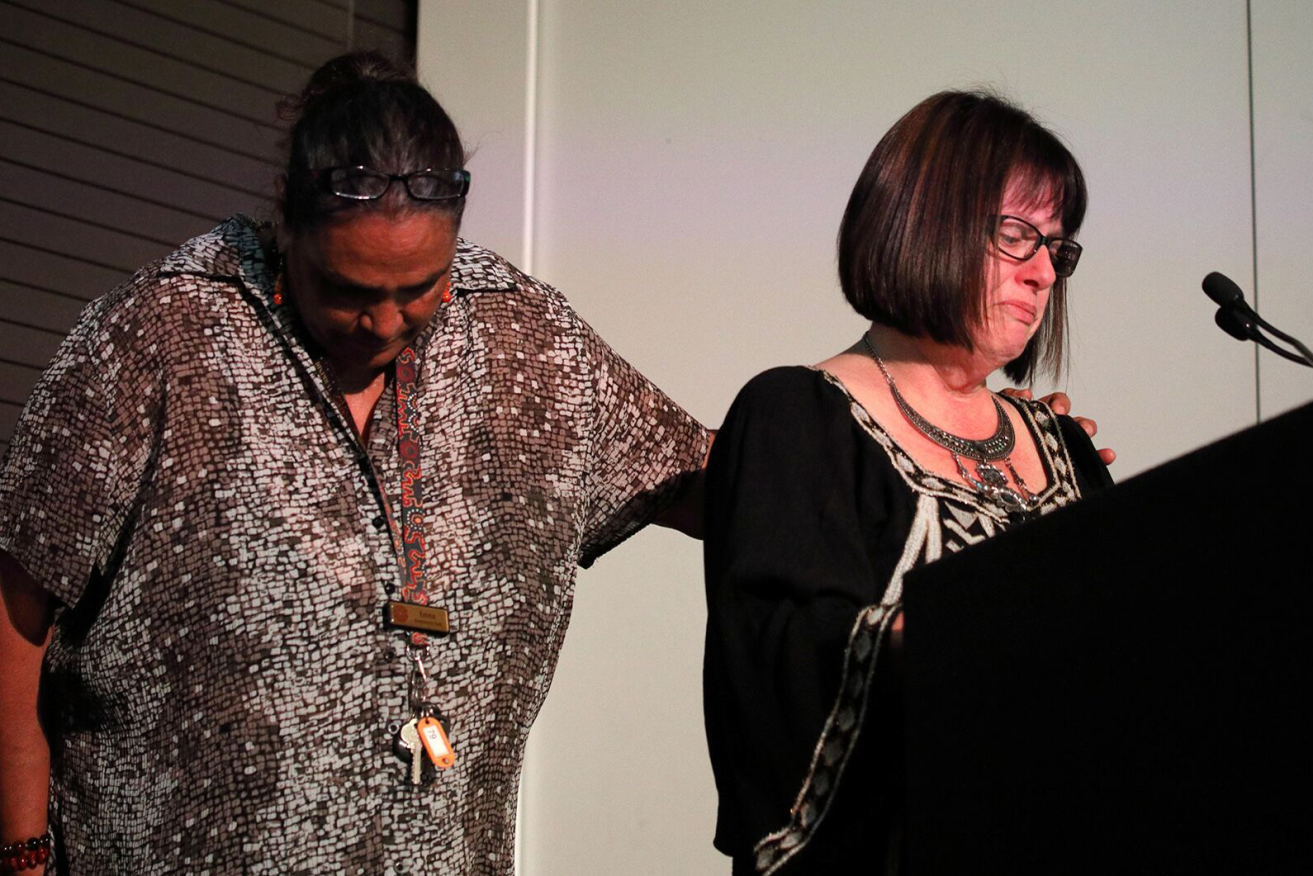
South Australian survivors of institutional child sexual abuse gathered to mark today's national apology. Photo: Tony Lewis/InDaily
It was a small but emotional event, attended by South Australian politicians and several survivors of institutional child sexual abuse who had come to hear a state and national acknowledgement of the suffering children had endured at the hands of government, non-government and religious institutions.
Prime Minister Scott Morrison delivered the national apology in Parliament this morning in response to findings from the 17,000 survivors who participated in the royal commission into institutional responses to child sexual abuse.
“Today as a nation we confront our failure to listen, to believe, and to provide justice … we say sorry,” Morrison told parliament.
“Why weren’t the children of our nation loved, nurtured and protected? Why was their trust betrayed?
“Why did those who know cover it up? Why were the cries of children and parents ignored? Why was our system of justice blind to injustice? Why has it taken so long to act? Why were other things more important than this, the care of innocent children? Why didn’t we believe?”
Morrison said nothing could be done to right the wrongs inflicted on children.
“Even after a comprehensive royal commission, which finally enabled the voices to be heard and the silence to be broken, we will all continue to struggle,” he said.
“So today, we gather in this chamber in humility, not just as representatives of the people of this country, but as fathers, as mothers, as siblings, friends, workmates and, in some cases, indeed, as victims and survivors.”
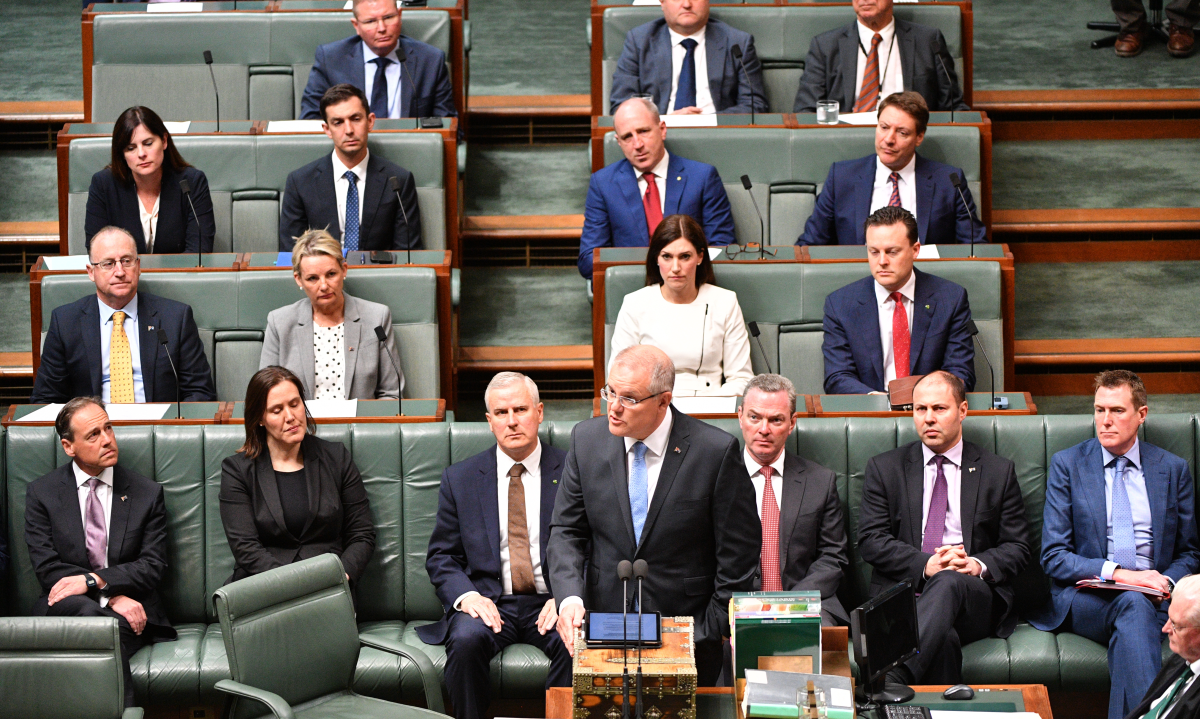
Prime Minister Scott Morrison delivering the national apology to victims of institutional child sexual abuse. Photo: Mick Tsikas / AAP
One of the attendees at the Adelaide event, Annette, said her experience of child sexual abuse while a ward of the state constituted “one of the darkest periods of sexual abuse in Australian history”.
“One of the major impacts is loss of innocence – how as children we were burdened with shame, pain and guilt that should never have been ours to carry,” she said.
“Mental disorders, major depression, crippling anxiety, the struggle to feel accepted, not feeling worthy or good enough, isolation, bullying, not being able to trust is huge, guilt and shame that wasn’t ours to bear.
“This impacts our parenting and how we interact with our children.”
Annette welcomed the Federal Government’ apology and called on the survivors, governments and general public to “work together to change the system”.
“Without action nothing changes and that keeps us all back in that place of hurt and pain, distrust, rejection and unable to move forward,” she said.
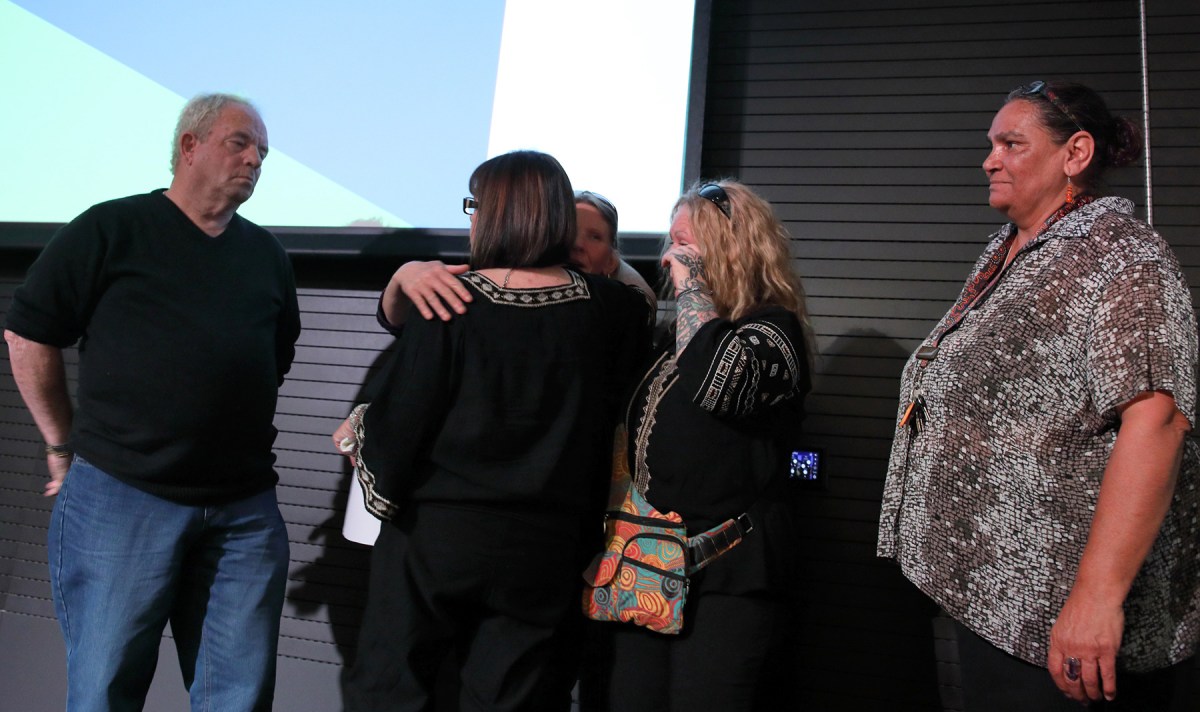
Survivors of institutional child sexual abuse in Adelaide. Photo: Tony Lewis / InDaily
Fellow survivor Robert Sherriff, who said he became a ward of the state in 1961 when he was taken from his abusive father and placed in the former Glandore Boys’ Home, expressed his anger at previous governments’ inaction on protecting and acknowledging survivors.
“My father broke my arm and four of my ribs,” he said.
“I was placed in Glandore Boys’ Home (and) the sexual abuse started more or less straight away.
“They couldn’t understand why I was so dysfunctional, what was going on (so) they started giving me shock treatment… but they never realised what was going on, the people behind the operation working for the government, employees of the government sexually abused children at night-time behind closed doors.”
“The previous Government of South Australia, the Rann and the (Weatherill)… Government, they didn’t say sorry.
“Today I think will be Sorry Day because previous governments of this state didn’t care about victims.”
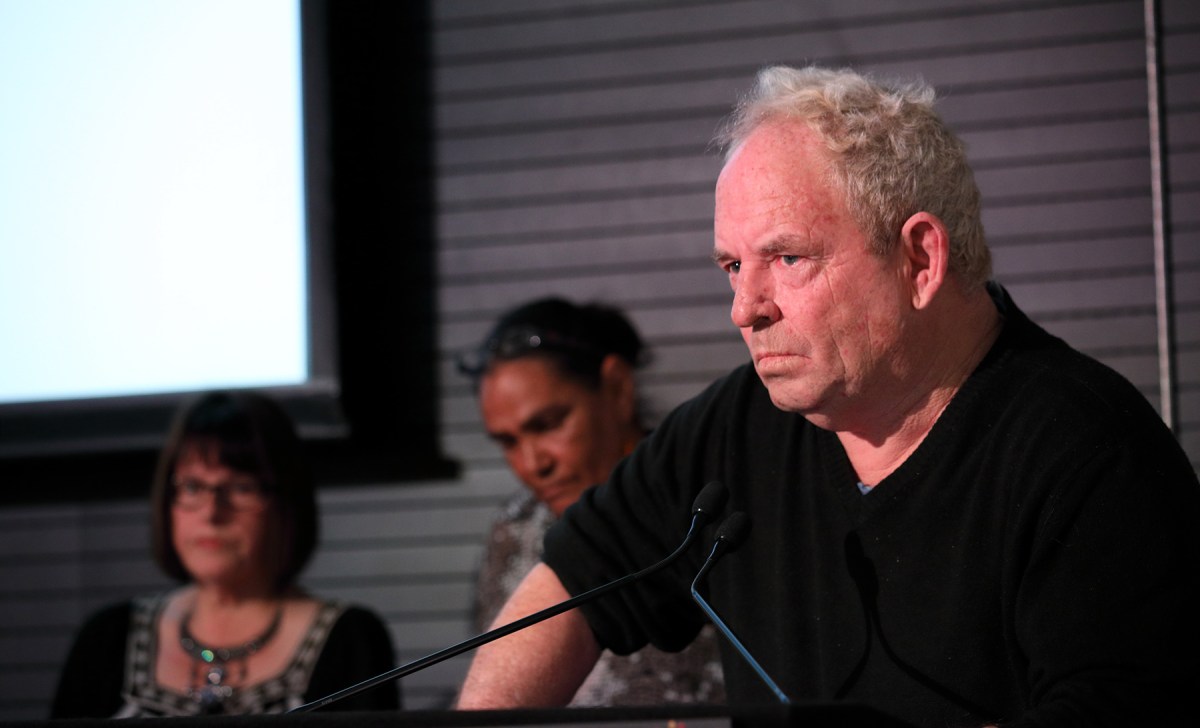
Adelaide survivor Robert Sherriff expressed anger at his treatment as a child. Photo: Tony Lewis / InDaily
Premier Steven Marshall, who is overseas, offered a state apology via a pre-recorded video.
“As Premier of South Australia I would like to extend a heartfelt apology to all people who have experience institutional child sexual abuse,” he said.
“The Commonwealth royal commission into institutional responses to child sexual abuse opened our eyes to the appalling and traumatic experiences that innocent children were put through.
“You were failed. Failed by government, non-government and religious organisations and many people who were abused will carry the psychological, physical and emotional scars for the rest of their lives.
“You deserve recognition and you deserve justice.”
Marshall said the State Government hoped that the national redress scheme would “help the journey of healing and repair”.
“We hope that by removing compensation time limits for child abuse will help many of you to seek justice and to do it in your own time.
“We must and we will do better.”
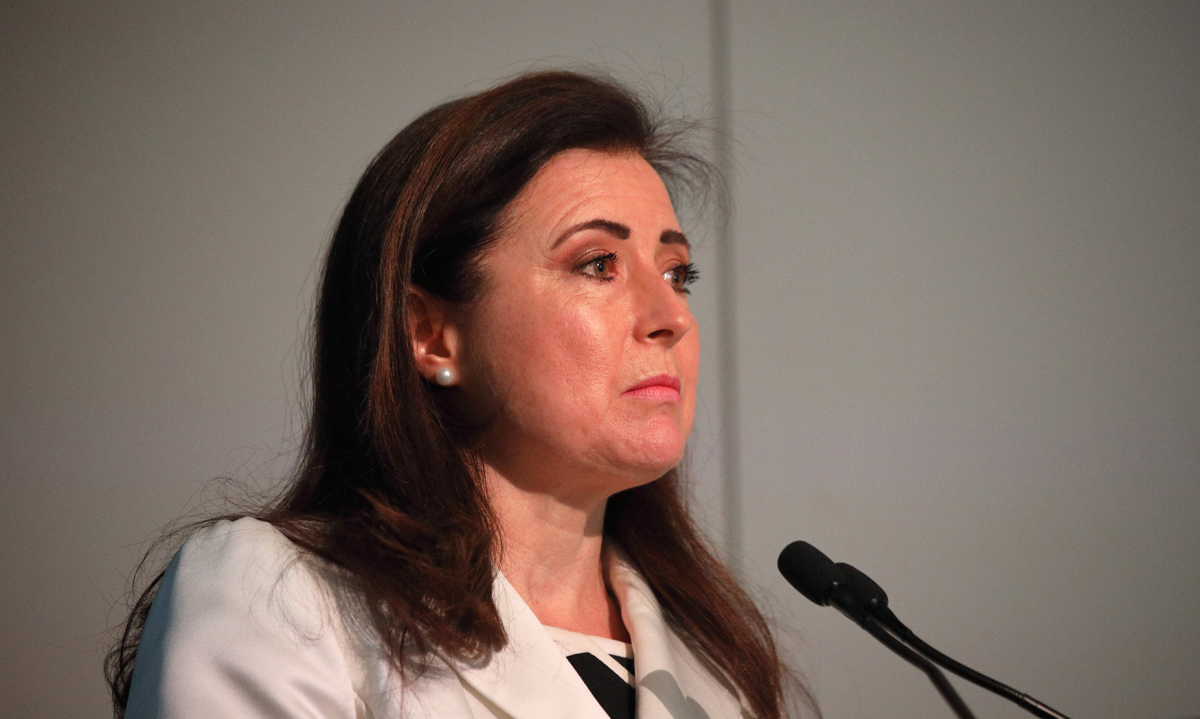
Child Protection Minister Rachel Sanderson speaking at the Adelaide apology event. Photo: Tony Lewis / InDaily
Addressing the Adelaide audience, South Australian Child Protection Minister Rachel Sanderson said she hoped today’s apology honoured the bravery those who participated in the royal commission.
She also noted that the new state-based child protection legislation, passed in Parliament on Tuesday, would come into effect today.
“That legislation formally embeds the importance to the state of children and young people and their voices,” she said.
“The legislation formally embeds the voice of the child into everything we do, an important step given the royal commission’s findings that children who experience sexual abuse face significant barriers to seeking help.”
The legislation also extends the powers of children, carers and guardians by:
- Giving children the right to be heard in court and talk privately with the judge, as well as being involved in decisions that impact them
- Enabling carers to seek long-term guardianship of a child that has been in their care for more than two years
- Placing Aboriginal and Torres Strait Islander children with a member of their family, a member of their community or with another person of Aboriginal or Torres Strait Islander cultural background
- Engaging family in more group conferences about the care of children
- Making it compulsory for children under guardianship to have individual case plans
- Increasing powers to direct parents and guardians to undergo a drug or alcohol assessment, test or rehabilitation program.
Shadow Child Protection Minister Jayne Stinson said the legislation, introduced by the former Labor Government, was the biggest change to the child protection system in about 25 years.
“It’s a really serious overhaul of the way we do child protection in this state,” she said.
“It puts the child’s voice as a priority and says, look we haven’t done a good job of listening to children in the past and we need to do better at that.”
For support call Lifeline – 13 11 14
– with AAP




